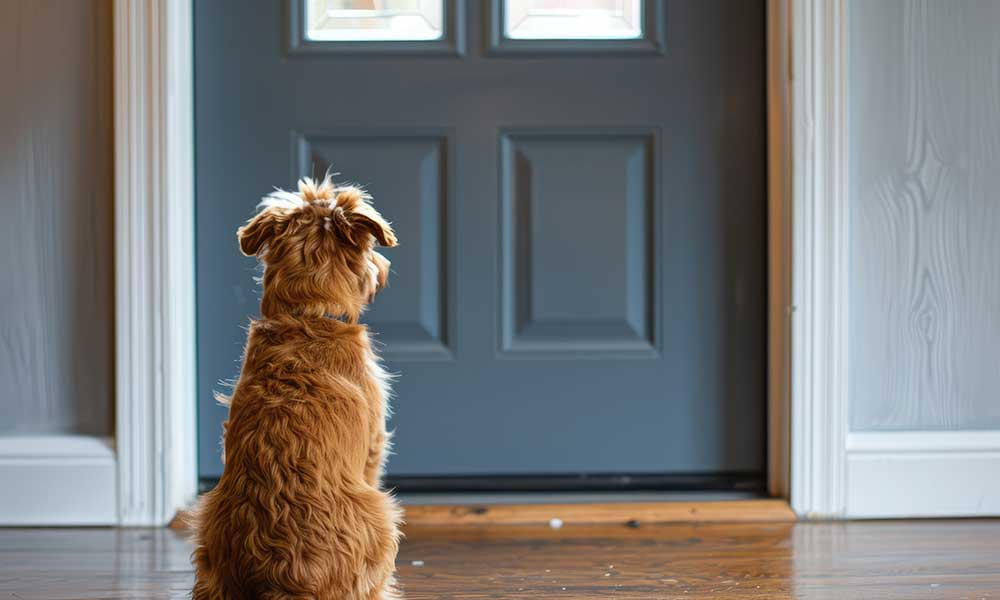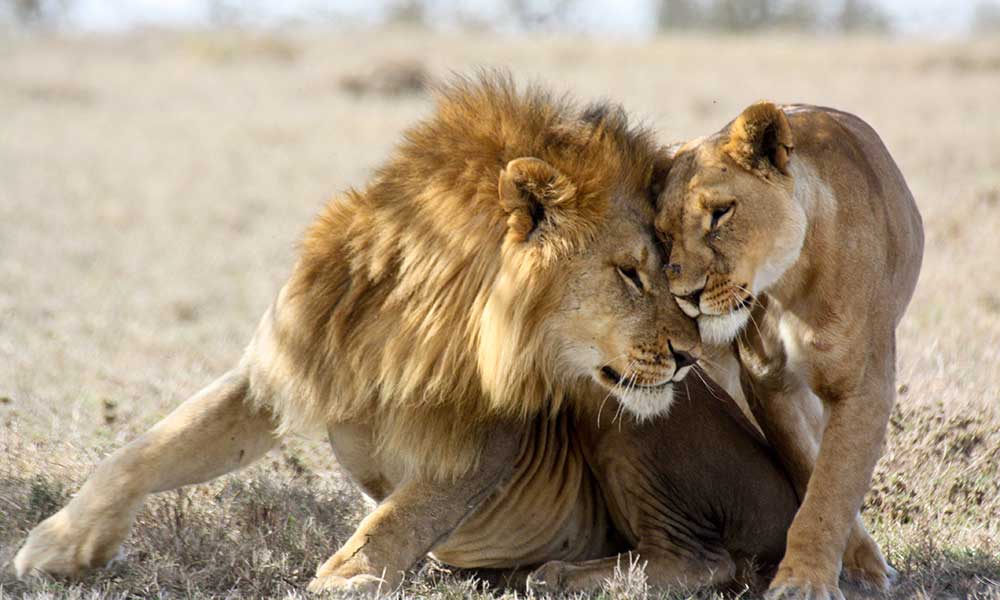Whether it’s a dog wagging its tail and yelping with excitement, a cat sitting expectantly on the windowsill, or a bird squawking and pacing, animals seem to know when their owners are coming home.
Sure, they possess finely tuned senses that humans don’t have, but there has to be something else happening here. So, how do animals know when you’re coming home—is it a combination of senses, intuition, and routine recognition, or a little bit of everything?
The Olfactory Landscape: A Symphony of Scent
A dog’s sense of smell is thought to be between 10,000 and 100,000 times better than ours. They’re not just smelling everything in the room; they’re painting an olfactory image that can tell them everything about their surroundings.
It could, theoretically, help them to judge when you’re coming home. It’s thought that a cat’s sense of smell is about 14x better than ours—less impressive, but it’s possible they could smell you coming.
It’s not just you, either. It’s your car and your work clothes—that distinctive engine smell or the workplace air freshener that seems to cling to everything.
They could also detect changes in the environment. They might not be able to tell the time and anticipate your return, but your children and partner can, and their instinctive habits—cooking food, getting ready for their soccer practice, turning on the TV—can give the game away.
The Auditory World: Tuning into Familiar Sounds
Hearing is where cats have the upper hand over dogs, but both animals can hear significantly better than us, with a range of about 64,000 Hz for cats and 50,000 Hz for dogs, compared to just 20,000 Hz (dropping to as little as 12,000 Hz with age) for humans.
You can probably hear your partner’s playlist blasting out of the car when they pull into the driveway, but your pet could hear it from the end of the street. They can also detect the sound of the engine, the unique pattern of our gait, the way we open/close car doors, and other sounds that don’t fully register to human ears.
The way we drive, the music we play, and the pattern of our actions all create a unique signature that heralds our presence.
Animals can also tune into the noise on the street, such as detecting that there are more cars and children playing at the time we return. These subtle environmental shifts are often the reason they always seem to know what time it is.
The Power of Routine and Association
Routine is key for all pets, and it’s also one of the reasons they’re so attuned to you coming and going. They know your schedule. Cats and dogs wake at the sound of your alarm or begin pestering you as soon as you stir. Birds anticipate breakfast when they hear your alarm.
Routines create patterns that influence their biological clock. They know roughly how long you’re at work or school every day and how long you sleep.
The more entrenched you are in your routine, the easier it will be for your pets to predict when you’re coming home.
Beyond the Senses: The Whispers of Connection
Smell, hearing, and routine are clearly a major part of this process, but there could be something else at play.
Every pet owner has stories of times when their animals seemingly developed a level of intuition:
- • Dogs nudging your hands for a cuddle when you’re feeling down
- • Cats becoming more tactile than usual when you’re having a bad day
- • Pets seemingly knowing when you’re returning even when you break routine
It indicates a higher level of understanding, one that could stem from the unique bonds that we share with our pets. It’s akin to knowing that your partner or kids are in trouble or that random impending sense of doom when something bad happens to a loved one.
It’s a bond that transcends sensory explanations and one that’s hard to nail down. But if the thousands of anecdotal reports are any judge, there’s clearly something there.
The Canine and Feline Perspective: Nuances in Anticipation
Dogs seem to rely heavily on routine and scent when judging when their owner is coming home. They could smell their owner coming or detect unique social cues, such as a partner who does the same thing before a loved one returns.
Cats have very advanced hearing but seem to rely more on environmental changes that give them an idea of the time and suggest that their owner is due to return.
The stronger your bond and the more fixed your routine, the more likely both dogs and cats are to anticipate your return and react with excitement when they know you’re nearby.
Can We Enhance This Connection?
You can enhance their ability to detect your arrival by creating rigid routines. Show them that you’re leaving, give them something that will entertain them, and follow the same routine when you return.
Show your love when you’re with them and away from them. If there is a stronger spiritual connection, you can transfer some positive emotions and intentions when you’re at work or returning home.
Conclusion: The Mystery of the Waiting Heart
Pets use their heightened senses to detect when you’re coming home. They rely on their sense of smell and hearing in combination with unique environmental indicators and fixed routines to judge when you’re arriving.
The bond you have with your pet could also provide a deeper spiritual connection. They know when you’re sad or angry; they know when you need more emotional support, so it’s fair to assume that they can use the same sense to predict when you will return.





